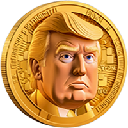-
 Bitcoin
Bitcoin $96,829.1495
-0.23% -
 Ethereum
Ethereum $2,703.6718
-2.76% -
 Tether USDt
Tether USDt $1.0001
0.00% -
 XRP
XRP $2.3360
-2.39% -
 Solana
Solana $190.6884
-3.47% -
 BNB
BNB $577.2251
1.06% -
 USDC
USDC $1.0000
-0.01% -
 Dogecoin
Dogecoin $0.2504
-2.39% -
 Cardano
Cardano $0.7172
-2.62% -
 TRON
TRON $0.2314
4.31% -
 Chainlink
Chainlink $18.7208
-2.36% -
 Avalanche
Avalanche $24.7341
-4.41% -
 Stellar
Stellar $0.3210
-2.06% -
 Sui
Sui $3.1606
-4.60% -
 Toncoin
Toncoin $3.7631
-0.42% -
 UNUS SED LEO
UNUS SED LEO $9.7922
-0.72% -
 Hedera
Hedera $0.2317
-2.89% -
 Shiba Inu
Shiba Inu $0.0...01490
-5.26% -
 Bitget Token
Bitget Token $6.6980
2.26% -
 Hyperliquid
Hyperliquid $24.0130
-3.38% -
 Litecoin
Litecoin $105.3417
1.06% -
 Polkadot
Polkadot $4.5412
-3.22% -
 Bitcoin Cash
Bitcoin Cash $318.8156
-2.45% -
 Ethena USDe
Ethena USDe $1.0000
-0.02% -
 MANTRA
MANTRA $5.7887
0.28% -
 Uniswap
Uniswap $9.0322
-2.34% -
 Dai
Dai $1.0000
0.00% -
 Ondo
Ondo $1.3438
1.35% -
 Monero
Monero $222.4597
-2.86% -
 Pepe
Pepe $0.0...09297
-7.30%
how to buy crypto without limits
By employing peer-to-peer platforms, decentralized exchanges, or VPNs, crypto enthusiasts can unlock unlimited crypto purchases, but it is crucial to navigate the associated challenges, such as trust issues, technical complexities, and potential security risks.
Jan 29, 2025 at 11:18 pm

Unlocking Unlimited Crypto Purchases: A Comprehensive Guide to Circumventing Crypto Limits
Key Points:
- Understand the reasons behind crypto purchase limits and the consequences of exceeding them.
- Explore various methods to purchase crypto without restrictions, including peer-to-peer platforms, decentralized exchanges, and VPNs.
- Weigh the advantages and disadvantages of each method and identify the most suitable option based on specific needs.
- Discover tools and resources to enhance security and avoid potential risks while making crypto purchases without limits.
- Address frequently asked questions related to unlimited crypto purchases covering topics such as legality, risks, and alternative investment options.
Step 1: Comprehending Crypto Purchase Limits and their Implications
Crypto exchanges and other platforms often impose limits on the amount of crypto users can purchase, usually determined by factors such as platform security measures, regulatory compliance, and risk management protocols. Exceeding these limits can result in account suspension, funds being frozen, or even legal action in some cases.
Understanding the reasons for these restrictions is crucial to avoid unintentionally violating platform guidelines and mitigate potential consequences. It is important to note that these limits vary across platforms, so checking the specific policies of each chosen exchange is essential.
Step 2: Embracing Peer-to-Peer Platforms for Limitless Crypto Purchases
Peer-to-peer (P2P) platforms connect buyers and sellers directly, allowing for crypto transactions without the involvement of a centralized exchange. This eliminates the need for KYC/AML checks and often comes with higher purchase limits or no limits at all.
However, P2P platforms also come with unique challenges, such as the need for trust between buyers and sellers, potential scams, and the lack of buyer protection mechanisms offered by exchanges. Conducting thorough due diligence on trading partners and using reputable platforms can mitigate these risks.
Step 3: Leveraging Decentralized Exchanges for Unrestricted Crypto Transactions
Decentralized exchanges (DEXs) operate on blockchain networks, allowing users to trade crypto directly with each other without the need for intermediaries. DEXs typically do not enforce purchase limits, offering users the freedom to trade as much crypto as they want.
DEXs empower users with greater control over their funds and offer enhanced security features, as they are not subject to centralized security breaches or regulatory interference. However, DEXs may have lower liquidity compared to centralized exchanges and can be more complex to use for beginners.
Step 4: Utilizing Virtual Private Networks (VPNs) to Circumvent Geo-Blocking and Purchase Limits
VPNs encrypt internet traffic and route it through a server in a different location, enabling users to mask their IP addresses and bypass geo-restrictions. This technique can be used to access crypto exchanges that may have purchase limits in specific regions.
VPNs provide anonymity and enhanced online security but can also introduce connection lags and performance issues. It is essential to choose reputable VPN providers and understand the potential risks involved with using a VPN before employing this method.
Step 5: Enhancing Security and Mitigating Risks in Unlimited Crypto Purchases
Making crypto purchases without limits carries inherent risks that require vigilant security measures. Here are some practices to minimize risks:
- Utilize 2-factor authentication (2FA) and strong passwords to secure accounts.
- Keep private keys and seed phrases confidential, and consider storing them offline in a hardware wallet.
- Be cautious of phishing scams and suspicious links or emails.
- Only use reputable and well-established platforms for crypto transactions.
- Conduct thorough research and understand the risks associated with each chosen method for purchasing crypto without limits.
FAQs:
Q: Is it illegal to purchase crypto without limits?
A: The legality of purchasing crypto without limits varies depending on specific jurisdiction. Some countries may have regulations or restrictions in place, while others may allow unrestricted crypto purchases.
Q: Are there risks associated with purchasing crypto without limits?
A: Yes, there are potential risks involved, including security risks, legal risks in certain jurisdictions, and the volatility of the crypto market. Understanding these risks and taking appropriate measures to mitigate them is crucial.
Q: What are some alternative investment options to purchasing crypto without limits?
A: If purchasing crypto without limits is not feasible or desired, alternative investment options include investing in crypto-related stocks, futures contracts, or ETFs (exchange-traded funds) that track the performance of cryptocurrencies.
Disclaimer:info@kdj.com
The information provided is not trading advice. kdj.com does not assume any responsibility for any investments made based on the information provided in this article. Cryptocurrencies are highly volatile and it is highly recommended that you invest with caution after thorough research!
If you believe that the content used on this website infringes your copyright, please contact us immediately (info@kdj.com) and we will delete it promptly.
- Cardano (ADA) Price Prediction: Will ADA Drop 32.75% and Hit $0.2586?
- 2025-02-07 09:46:03
- RCO Finance (RCOF) Might Become the Best Crypto Investment of 2025, Here's Why
- 2025-02-07 09:46:03
- Dogecoin (DOGE) Price Prediction 2025: Will DOGE Break Through Resistance?
- 2025-02-07 09:46:03
- Best Crypto Coins to Watch in 2025: BlockDAG, VeChain, AAVE & Aptos
- 2025-02-07 09:46:03
- Memecoins: The rise of the joke cryptocurrencies that are luring young Singaporean investors
- 2025-02-07 09:46:03
- FXGuys ($FXG): The New DeFi Contender That Could Outshine Cardano (ADA) and Hedera (HBAR)
- 2025-02-07 09:46:03
Related knowledge

Bitcoin wallets: What's a good selection?
Feb 07,2025 at 10:09am
Key Points:Types of Bitcoin Wallets: Hardware, Software, Custodial, and Non-CustodialFactors to Consider When Choosing a Bitcoin Wallet: Security, Convenience, Fees, FeaturesTop-Rated Bitcoin Wallets: Ledger, Trezor, Exodus, Coinbase Wallet, ElectrumBitcoin Wallets: What's a Good Selection?Bitcoin, the world's leading cryptocurrency, requires a secure a...

Is Bitcoin limited to US dollar cancellation?
Feb 07,2025 at 06:54am
Key Points:Bitcoin's potential for international money transfer and diversification optionsBitcoin's impact on global markets and financial inclusionThe role of stablecoins and digital assets in reducing reliance on the US dollarThe influence of cryptocurrency regulation on Bitcoin's global adoptionBitcoin's contribution to decentralized finance and the...

What does the wallet in Web 3.0 mean and what is the difference between it and the virtual currency of the exchange
Feb 07,2025 at 08:18am
Key Points:Definition and Features of Web 3.0 WalletsDifferences Between Web 3.0 Wallets and Exchange Virtual CurrenciesBest Web 3.0 Wallets for Different Needs (Omitting FTX)Frequently Asked Questions (FAQs)Definition and Features of Web 3.0 WalletsWeb 3.0 wallets are decentralized applications (dApps) that allow users to interact with Web 3.0 applicat...

What is a wallet? Including the most comprehensive introductory tutorial
Feb 07,2025 at 09:30am
Key PointsDefinition of a Cryptocurrency WalletTypes of Cryptocurrency WalletsChoosing the Right Cryptocurrency WalletHow to Use a Cryptocurrency WalletSecurity Best Practices for Cryptocurrency WalletsWhat is a Cryptocurrency Wallet?A cryptocurrency wallet is a software program or hardware device that stores the public and private keys used to access c...

What is the issuance volume of LAT coin? Introduction to LAT coin issuance and circulation price
Feb 07,2025 at 07:24am
Key PointsHistory of LAT issuanceLAT issuance mechanismLAT issuance scheduleLAT circulation supplyFactors affecting LAT issuanceArticleHistory of LAT IssuanceLAT coin (LAT) was first issued in 2017 through an initial coin offering (ICO). During this ICO, 400 million LATs were sold, raising over $60 million. These LATs were distributed to participants in...

What are the characteristics of digital currency? How does it work?
Feb 07,2025 at 08:55am
Key Points:Decentralization: Digital currencies are not subject to the control of any central authority, such as a government or bank. Instead, they are maintained by a distributed network of computers, or nodes, which work together to verify and process transactions.Immutable Ledger: The transactions made using digital currencies are recorded on a publ...

Bitcoin wallets: What's a good selection?
Feb 07,2025 at 10:09am
Key Points:Types of Bitcoin Wallets: Hardware, Software, Custodial, and Non-CustodialFactors to Consider When Choosing a Bitcoin Wallet: Security, Convenience, Fees, FeaturesTop-Rated Bitcoin Wallets: Ledger, Trezor, Exodus, Coinbase Wallet, ElectrumBitcoin Wallets: What's a Good Selection?Bitcoin, the world's leading cryptocurrency, requires a secure a...

Is Bitcoin limited to US dollar cancellation?
Feb 07,2025 at 06:54am
Key Points:Bitcoin's potential for international money transfer and diversification optionsBitcoin's impact on global markets and financial inclusionThe role of stablecoins and digital assets in reducing reliance on the US dollarThe influence of cryptocurrency regulation on Bitcoin's global adoptionBitcoin's contribution to decentralized finance and the...

What does the wallet in Web 3.0 mean and what is the difference between it and the virtual currency of the exchange
Feb 07,2025 at 08:18am
Key Points:Definition and Features of Web 3.0 WalletsDifferences Between Web 3.0 Wallets and Exchange Virtual CurrenciesBest Web 3.0 Wallets for Different Needs (Omitting FTX)Frequently Asked Questions (FAQs)Definition and Features of Web 3.0 WalletsWeb 3.0 wallets are decentralized applications (dApps) that allow users to interact with Web 3.0 applicat...

What is a wallet? Including the most comprehensive introductory tutorial
Feb 07,2025 at 09:30am
Key PointsDefinition of a Cryptocurrency WalletTypes of Cryptocurrency WalletsChoosing the Right Cryptocurrency WalletHow to Use a Cryptocurrency WalletSecurity Best Practices for Cryptocurrency WalletsWhat is a Cryptocurrency Wallet?A cryptocurrency wallet is a software program or hardware device that stores the public and private keys used to access c...

What is the issuance volume of LAT coin? Introduction to LAT coin issuance and circulation price
Feb 07,2025 at 07:24am
Key PointsHistory of LAT issuanceLAT issuance mechanismLAT issuance scheduleLAT circulation supplyFactors affecting LAT issuanceArticleHistory of LAT IssuanceLAT coin (LAT) was first issued in 2017 through an initial coin offering (ICO). During this ICO, 400 million LATs were sold, raising over $60 million. These LATs were distributed to participants in...

What are the characteristics of digital currency? How does it work?
Feb 07,2025 at 08:55am
Key Points:Decentralization: Digital currencies are not subject to the control of any central authority, such as a government or bank. Instead, they are maintained by a distributed network of computers, or nodes, which work together to verify and process transactions.Immutable Ledger: The transactions made using digital currencies are recorded on a publ...
See all articles

























































































